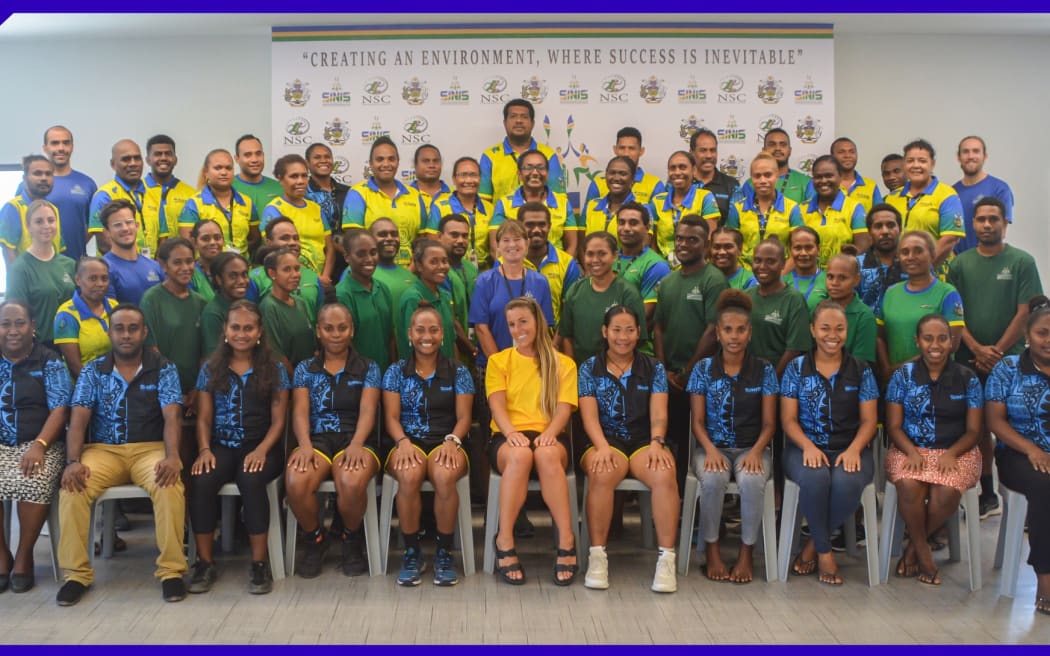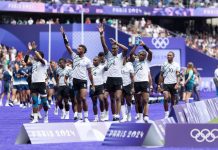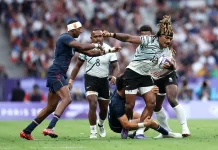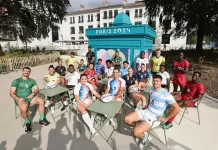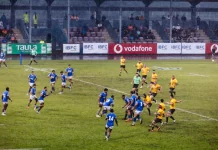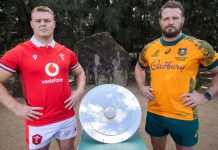Solomon Islands’ sports officials are confident of a impressive team performance at the Pacific Games which is being held in the capital Honiara later this year.
This belief is not only down to a desire to do well on its own turf: the country has a programme designed to improve sport performance.
The establishment of the Solomon Islands National Institute of Sports’ (SINIS) high performance unit has been touted as a positive development in sports programmes around the country.
Executive director Aaron Aslop told RNZ Pacific work in the last 18 months has focused on a holistic approach to athletes and coaching development, aimed at giving the Solomon Islands contingent the best preparation.
Aslop said the preparation has included sending 800 athletes to Australia and 80 to China.
“We are very confident in terms of the coaches and the athletes having their best performance ever at the Pacific Games,” Aslop said.
“We don’t say that arrogantly. We’re very confident and positive about the significant change in this unit in which we’ve been able to help athletes and coaches come into our training programme.”
Aslop said they had reviewed Team Solomons’ performances at the 2019 Pacific Games in Samoa and the 2022 Mini Games in Northern Marianas, which has helped them map out the training programme they had to implement.
Solomons finished with 29 medals at the 2022 Mini Games – five of them gold – to claim ninth spot overall.
At the 2019 Pacific Games Team Solomons finished 13th overall with 36 medals – four of them gold.
“Obviously, having watched the performance of Team Solomons at the 2019 Pacific Games and then the Mini Games in last year, has enabled us to start to track and monitor the performance of those athletes,” Aslop said.
“When they go to the international competitions and tours we’ve always been able to track their performance and the improvement of those sports as well, which has been quite positive.
“We really believe we’ve only scratched the surface in terms of their preparation and being able to get them to the standards that we want. We’re really confident about where they’re tracking.
“All that wouldn’t be possible without the partnership of the government, the national federations and the Olympic Committee.
“We’re very grateful that the local coaches have worked really closely with mentor coaches to start that training as well. So when you put all those ingredients for success together, complimented now with these international tournaments and opportunities, it’s really starting to shape up quite strongly.”
Aslop says the Government has been the driving force behind the set up of SINIS, with funding allocated to assist the programmes.
“All the programmes that we run here at SINIS are 100 percent funded by the government,” he said.
“We’re very grateful for the support and contribution. We are obviously able to get some support through volunteers and a number of the mentor coaches provide volunteer support to the partnerships that we have, which is a great contribution.”
The government also funds the training programmes in Australia.
SINIS, Aslop added, only supplements what government and the sports federations decide to work with.
In the case of going to Australia for camps and training programmes, Aslop and his team work on what’s best in terms of exposure, experience and knowledge to be gained, and ultimately maximising the investment government has done.
2So for example, basketball has got 5-a-side as well as 3×3, and volleyball has got beach volleyball and indoor volleyball. Across those sports, the national federation will identify opportunities, whether it’s relevant competitions such as the Oceania championships or regional competitions or Australian championships which are suitable standards for us to compete in,” he said.
“And then we support them through the development of their plan. We provide them with daily training support. When the athletes travel they would have undertaken a series of three to six months preparation before they go, really to maximise the investment that the government’s made for those competitions.
“So, some of them have identified particular events. For some of them the Oceania federations don’t have a championship, so we then looked to other suitable level competitions for them. That way we’ve been able to provide an international competition experience for the athletes prior to the Pacific Games.”
Aslop said in the last 18 months SINIS staff have worked with athletes across the board.
“We have got about 160 training sessions a week that our staff support the national coaches and athletes with,” Aslop revealed.
“We supported those national sports with everything from medical screening, video screening, nutritional screening, health checks, background injury assessments, performance testing and then we go ahead and establish training programmes on a weekly schedule with each of the federations and coaches. And those athletes are now undertaking between six and nine training sessions a week.
“We do a lot of education programmes as well around athlete wellbeing, health, nutrition and anti-doping. So that complements the work we do within the daily training environment to make sure that we’re focused on a really holistic approach to the way that we support the athlete.”
Aslop said they have also been boosted with the assistance of volunteer coaches funded by the Australian government, which assists them with allowances, enabling the coaches to be on the ground in Honiara.
“We do have some Australian volunteers that work for us here, which is funded through DFAT and they are provided with living allowance support to be able to come to the Solomon Islands and provide support in different areas of the programs that we run.
“And ultimately, their role is to be here to mentor the local staff in those particular areas.”
At the same time the Australian government has also offered SINIS a grant to enable head coaches of the different sports team in the Solomons to attend coaching sessions in Australia.
“We do have recently a small grant that’s been provided to us to go towards a coach study tour , which is an international study tour to the Gold Coast for our national head coaches to be immersed in some learning environment opportunities with experts around different areas of coach development.
“That is really appreciated and something that we’ve never been able to offer in the Solomon Islands before,” said Aslop.
SOURCE: RNZ PACIFIC/PACNEWS






